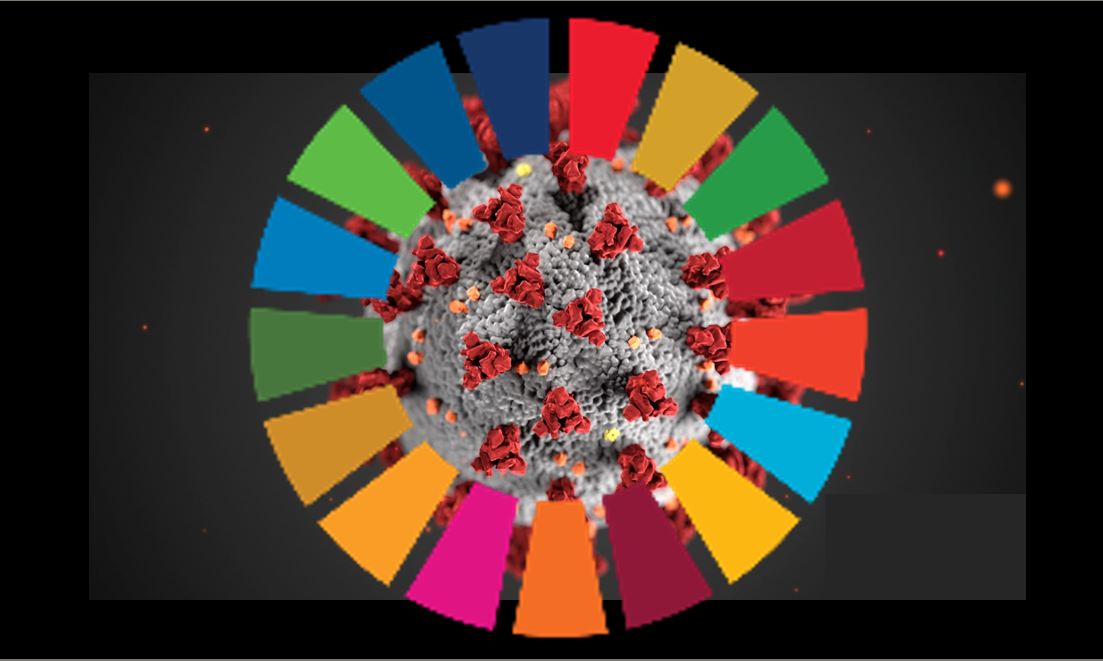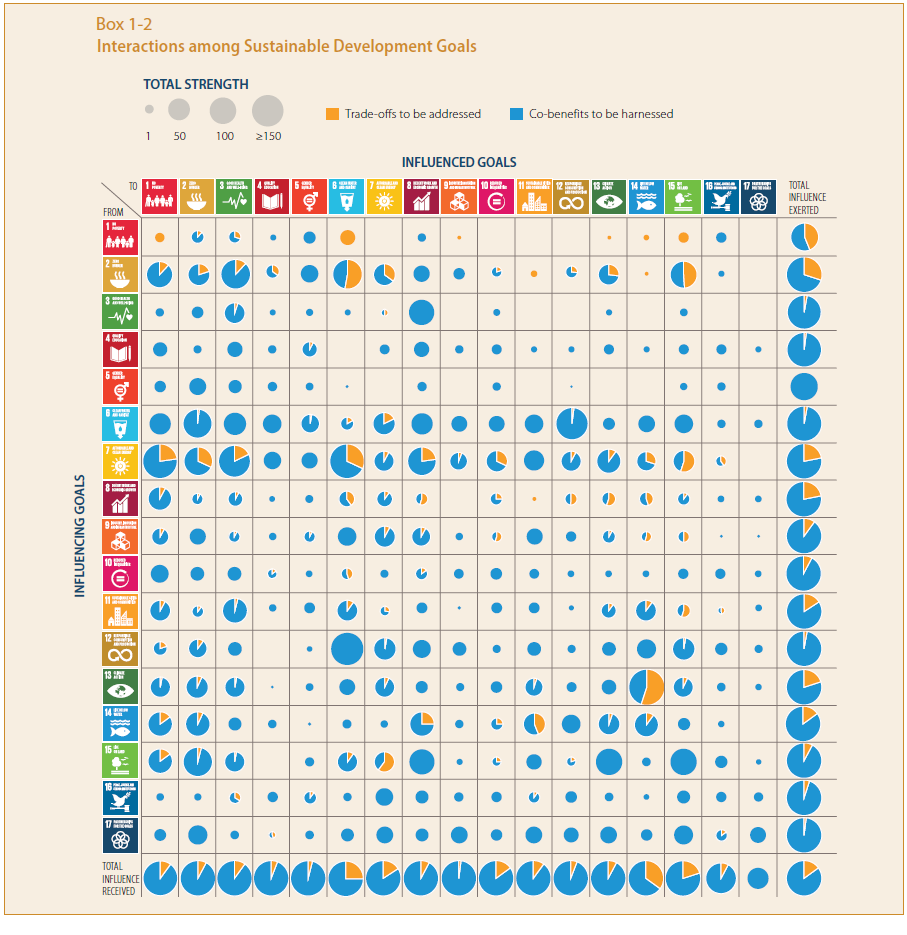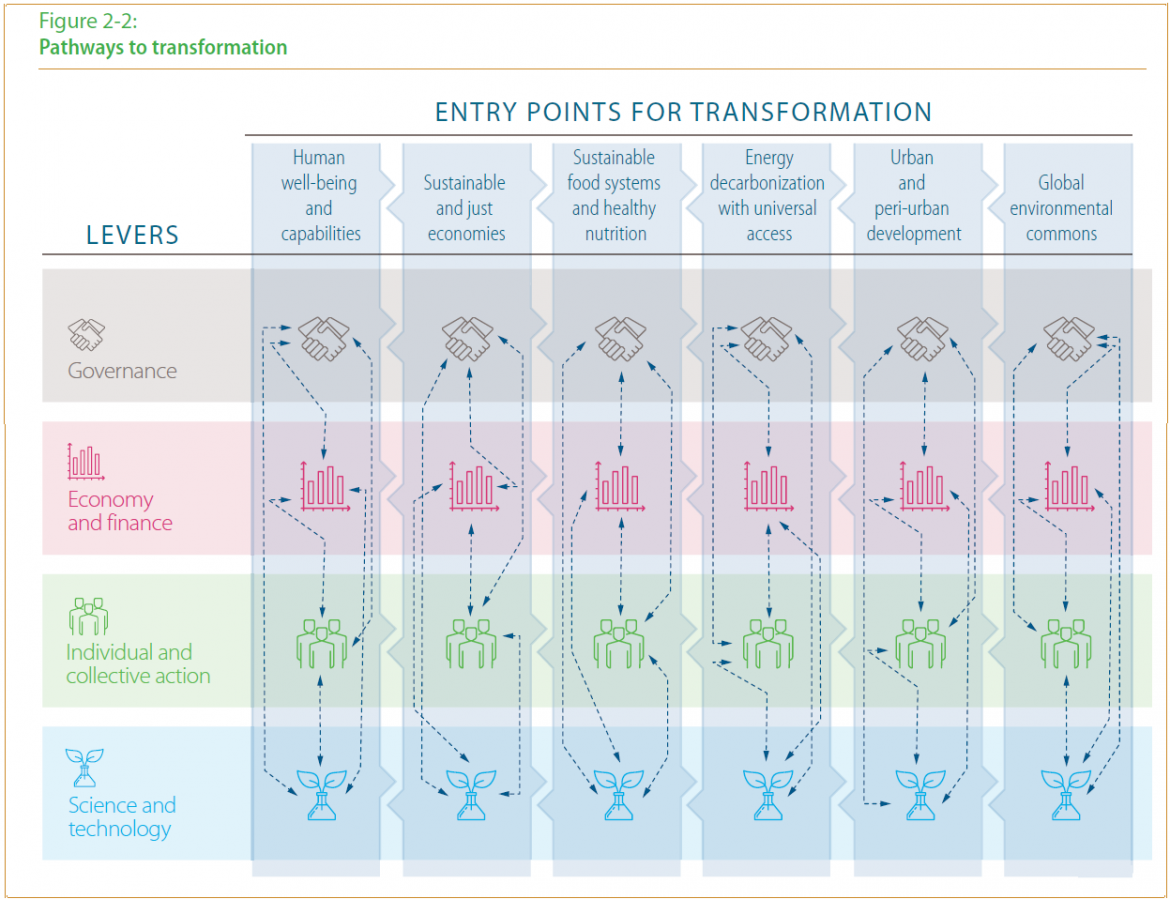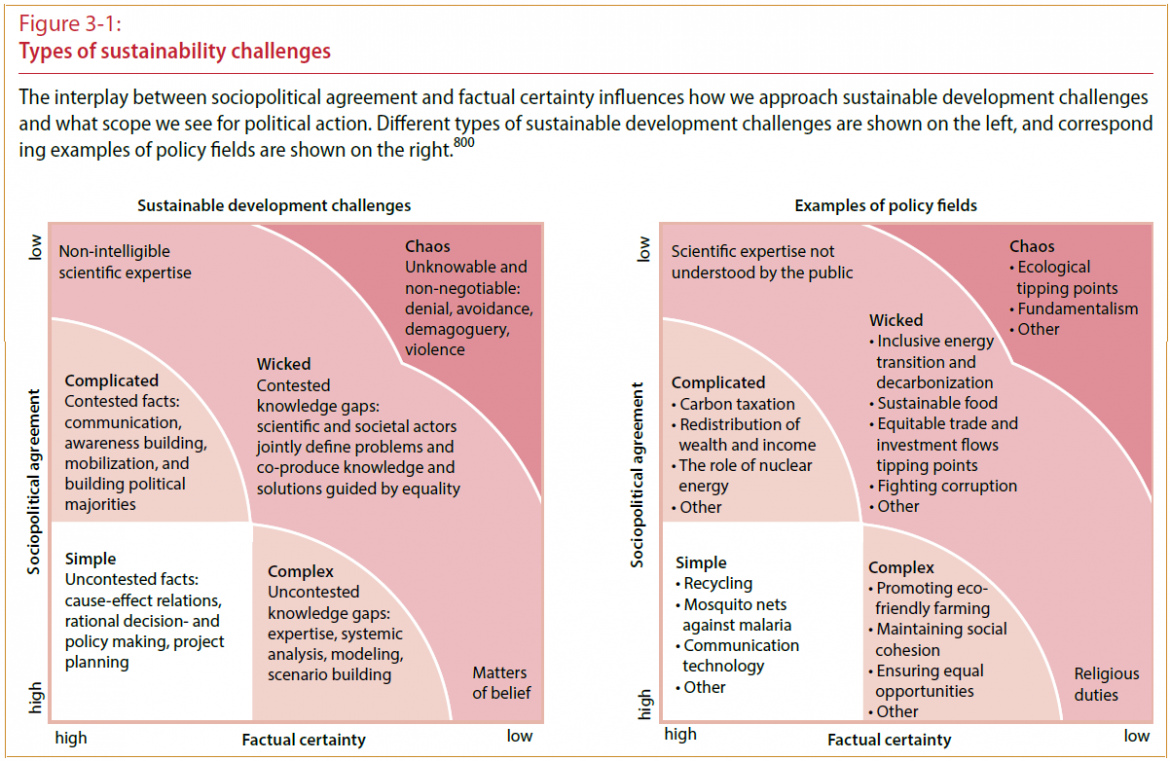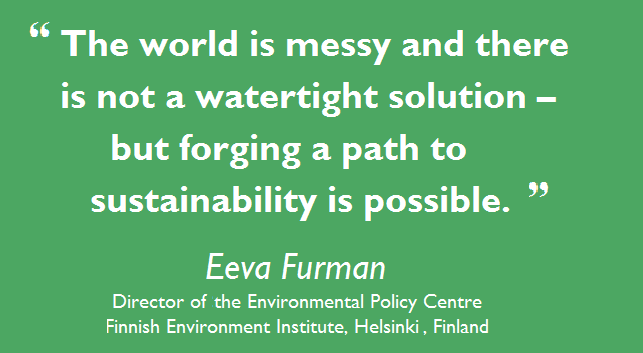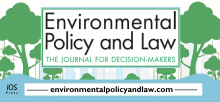Transforming systems
The GSDR 2019 calls upon all the actors to take an active role and ownership in the transformation of six societal systems which are most crucial for moving towards sustainable development in every country in the world. In fact, sustainability pathways to all UN SDGs can be seen in all the key systems that run the societies across the world: in economic processes, in food chains and eating behavior, in energy services, in models of urbanization, and the way in which global environmental commons are managed and in the groundings of human wellbeing and opportunities in life.
In order to turn these unsustainable systems to operate sustainably, we need the best efforts in an integrated way. Governance, finance and business, individual behavior and collective action – as well as science and technology – need to work in an cohesive manner and boost each other in order to turn towards sustainability paths. The GSDR 2019 offers a concrete framework for this (GSDR 2019, Figure 2-2, p.29) [1]. Here various societal actors are taking the central role in systems transformation and in the SDG-implementation. This is a way of taking the important political goals given to us as a compass and transforming with them in real life where the navigation takes place.
Who are the key players and what is the role of science? For instance, in the food system, its food chains, production and behavior patterns, content and impacts. It is not only connected to nutrition but also to health, poverty, water, nature, energy, climate change, education, infrastructure, consumption, and many other issues. It ties together all the SDGs, and thus offers to contribute to the entire Agenda 2030 framework. Each system also brings together various actors from businesses, local farmers, municipalities and nations, and communities as they have stakes in production, transforming, and use in different areas from local to global level. In fact an individual’s daily food system is linked with products and consumers from the other side of the planet.
Figure below source: Global Sustainable Developmental Report (p.29)


